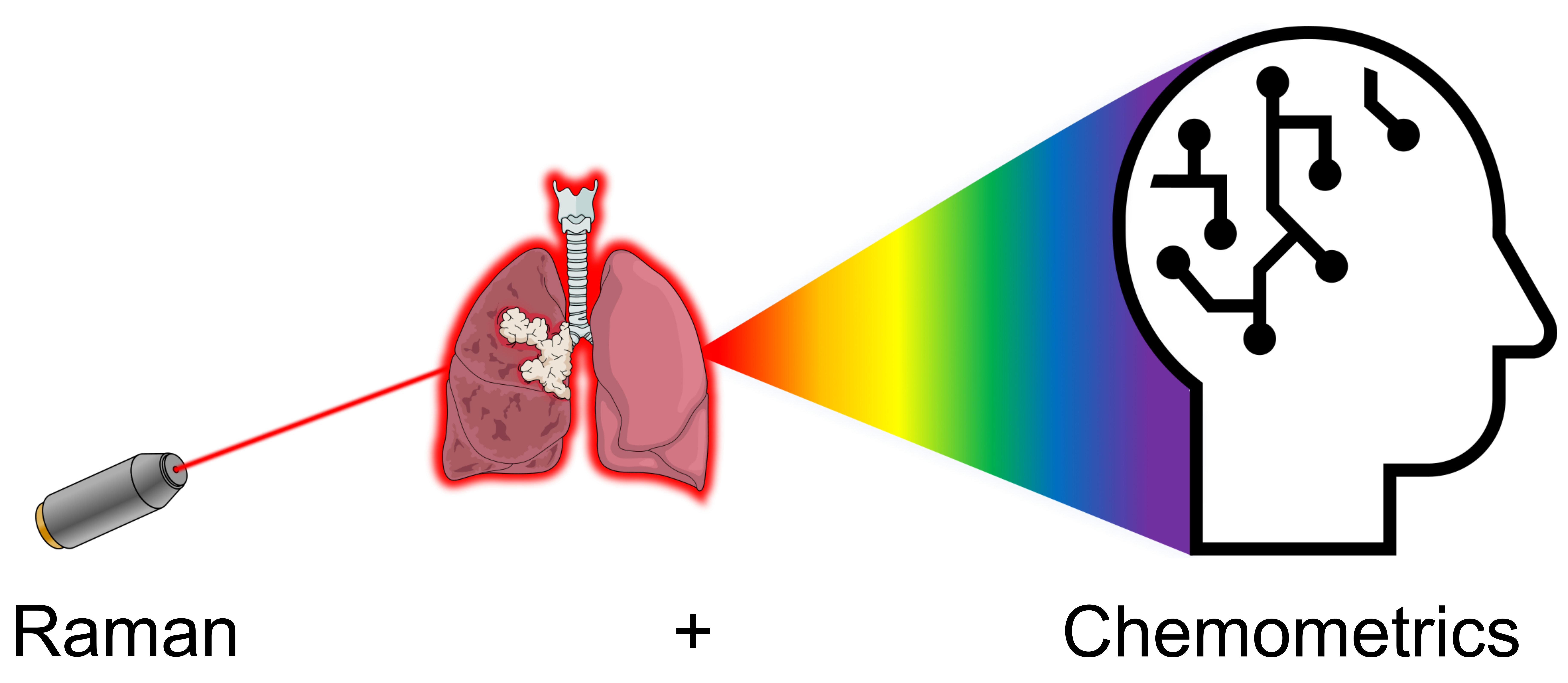Lung cancer detection through AI-driven spectroscopy
The application of vibrational spectroscopy in combination with chemometrics, is investigated for its potential in detecting lung cancer through blood analysis. Human plasma samples are measured using the two techniques Raman and Fourier-transform infrared (FTIR) spectroscopy to capture complementary molecular fingerprints associated with disease-related biochemical alterations.
The resulting high-dimensional spectral data are processed through an integrated pipeline that includes signal preprocessing, dimensionality reduction, feature selection, data fusion, classification, and biochemical interpretation. Predictive models demonstrate high diagnostic performance, with classification accuracies reaching over 90%, and up to 99% through data fusion strategies. Key spectral markers linked to alterations in proteins, lipids, and nucleic acids have been identified and interpreted in relation to cancer-specific metabolic profiles. This approach offers a reliable, minimally invasive alternative to conventional diagnostic methods and reduces the dependence on imaging procedures and invasive tissue biopsies.
Publications
H. Hano, B. Suarez, J. M. Amigo, C. H. Lawrie, and A. Seifert, Rapid noninvasive lung cancer screening via discriminative wavenumbers in Raman spectroscopy, Microchemical Journal, 209, 112496, 2025. https://doi.org/10.1016/j.microc.2024.112496
H. Hano, B. Suarez, C. H. Lawrie, and A. Seifert, Fusion of Raman and FTIR spectroscopy data uncovers physiological changes associated with lung cancer, International Journal of Molecular Science, 25, 10936, 2024. https://doi.org/10.3390/ijms252010936
H. Hano, C. H. Lawrie, B. Suarez, A. P. Lario, I. E. Echeverría, J. G. Mediavilla, M. I. C. Cruz, E. Lopez, and A. Seifert, The power of light: Raman spectroscopy and machine learning for the detection of lung cancer, ACS Omega, 9, 14084–14091, 2024. https://doi.org/10.1021/acsomega.3c09537

